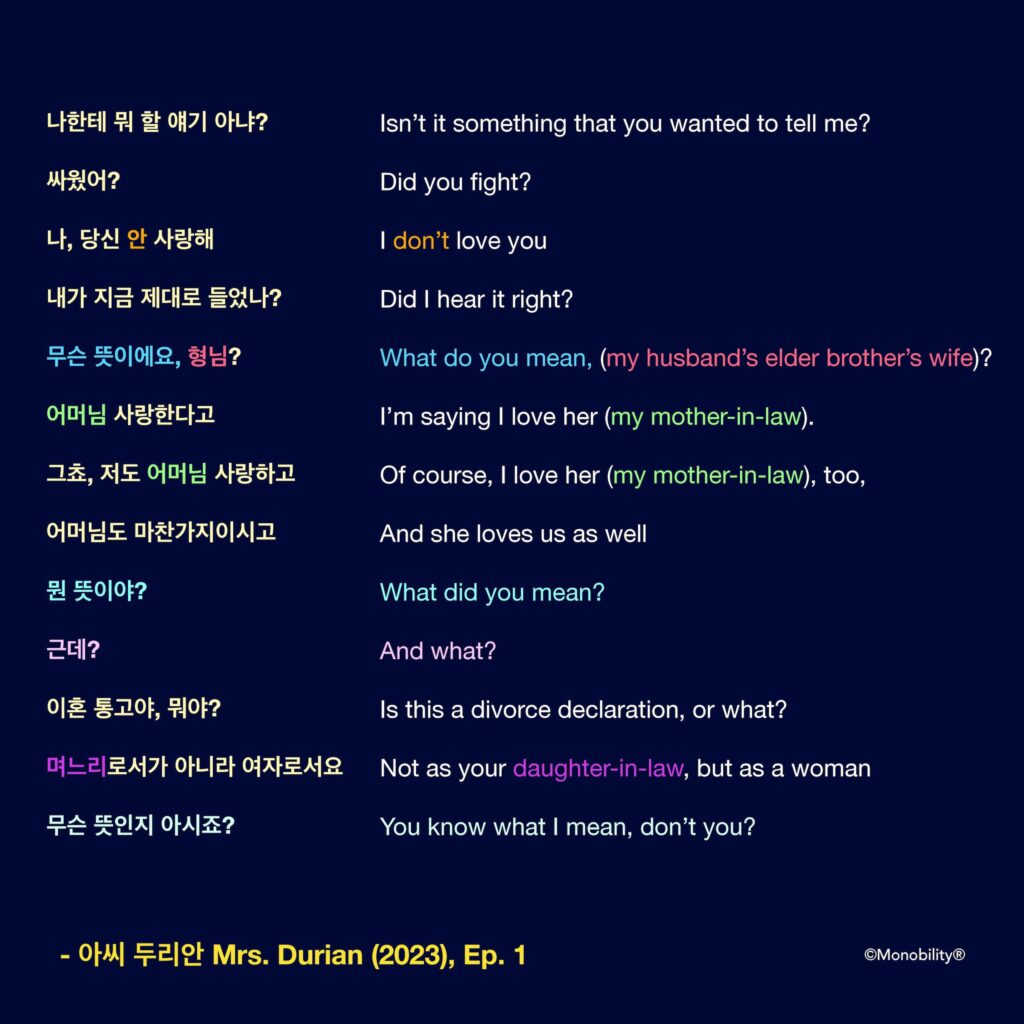Koreans don’t call family members by their names, except between siblings or cousins. Of course, you call your children by the names you or your father give to them. But you should never, ever, call elder members of the family by name. When you call family members in person, you should use Korean family position names according to their relations with respect to your position. It is particularly important if you are married to a Korean from a good family, or to some extent if your sibling is married to a Korean:
- If you are a girl, call:
Your husband’s mother (Mother-in-law): 어머님!
Your husband’s father (Father-in-law): 아버님!
Your husband’s elder brother: 아주버님!
Your husband’s elder brother’s wife: 형님!
Your husband’s younger brother: 도련님! [ Particularly if he is not married ]
Your husband’s younger brother’s wife: 동서!
Your husband’s elder sister: 형님!
Your husband’s younger sister: 아가씨!
Your elder brother’s wife: 새언니! or 언니!
Your elder sister’s husband: 형부!
Your younger brother’s wife: 올케!
Your younger sister’s husband: (his family name) + 서방!
etc., etc.
- If you are a boy, call:
Your wife’s mother (Mother-in-law): 장모님!
Your wife’s father (Father-in-law): 장인어른!
Your wife’s elder brother: 형님! [if he is older than you]; 동서! [if he is younger than you]
Your wife’s elder brother’s wife: 아주머니!
Your wife’s younger brother: 처남!
Your wife’s younger brother’s wife: 처남댁!
Your wife’s elder sister: 처형!
Your wife’s younger sister: 처제!
Your elder brother’s wife: 형수님!
Your elder sister’s husband: 매형!
Your younger brother’s wife: 제수씨!
Your younger sister’s husband: (his family name) + 서방!
etc., etc.
Please note that the above examples are used when you directly talk with each of them in person. If you refer to them when you talk about them with a third party, you would have to use a similar but often different system of position names. Welcome to the mesmerizing world of Korean relationships! ㅎㅎ
But don’t be frightened by the scope. After all, family position names are all set, so once you remember them, it is much easier than memorizing each person’s Korean name individually. And if you live in Korea, your loving Korean spouse or family members would kindly guide you in your journey of the Korean family “nomenclature” culture.

Join Monobility® Group for much more:



